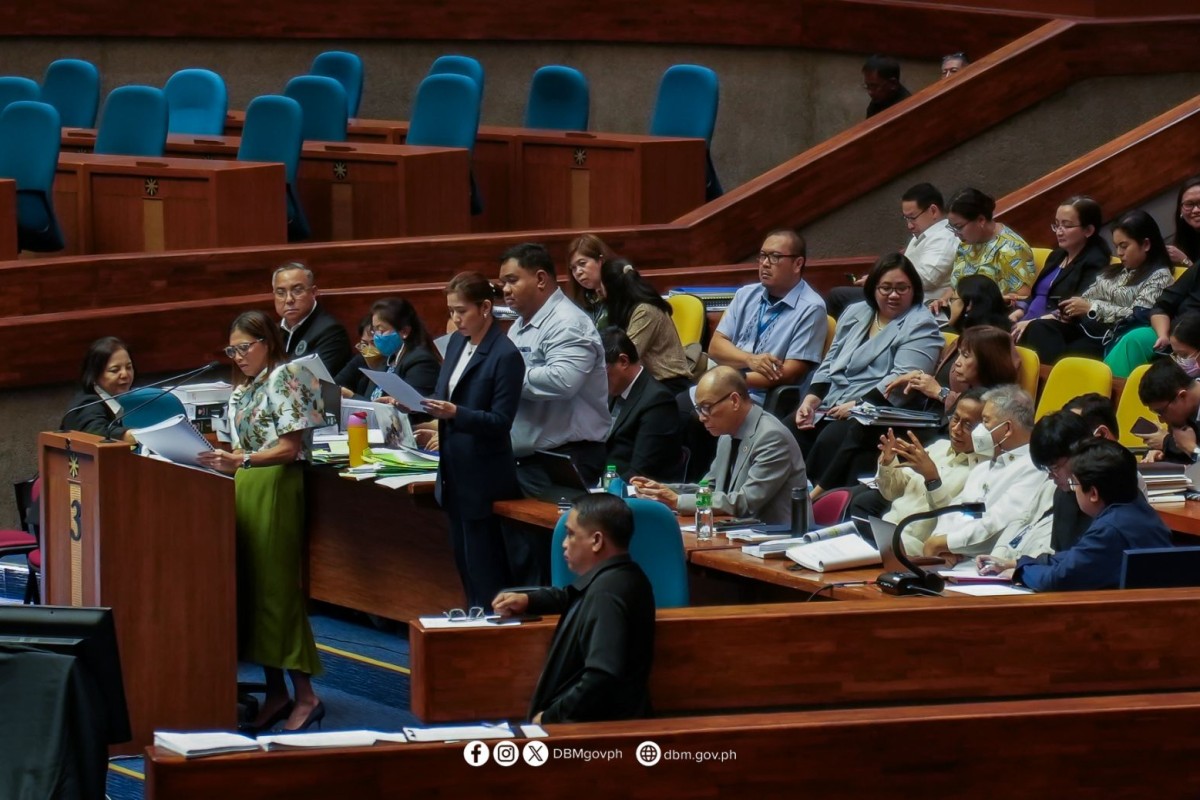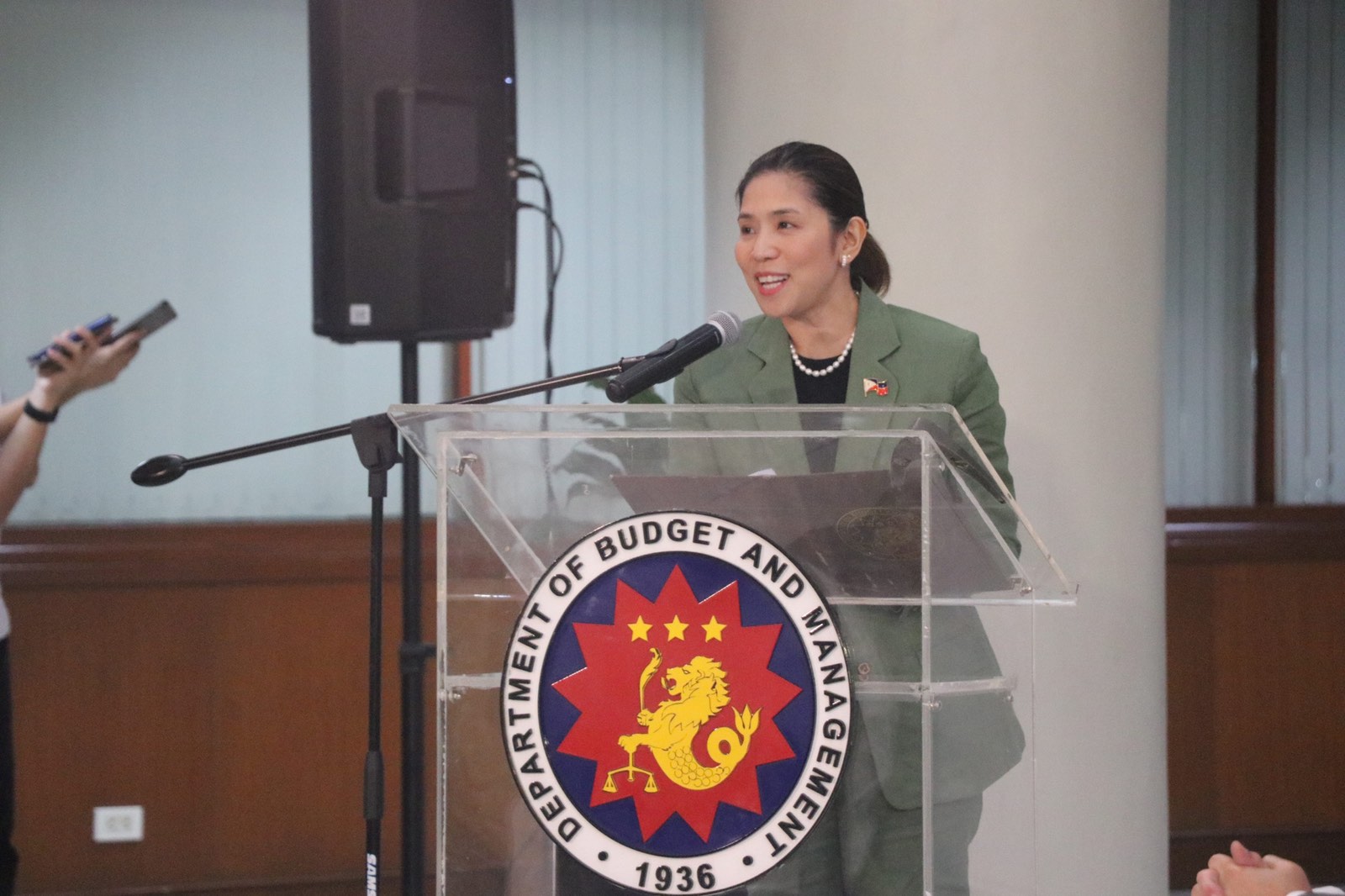MANILA -- The House of Representatives opened the plenary debates on House Bill No. 8980 or the FY 2024 General Appropriations Bill (GAB) on Tuesday, beginning with deliberations on the general provisions of the proposed budget led by House Committee on Appropriations Chair Elizaldy S. Co and Senior Vice Chair Stella Luz A. Quimbo.
During their sponsorship speeches, both representatives emphasized the significance of the budget bill, urging their fellow lawmakers to take proactive steps and join the Committee on Appropriations in crafting the best version of the Php 5.768 trillion budget for next year.
“Let us not merely approve a budget. Let us craft a legacy,” Quimbo said.
The Development Budget Coordination Committee (DBCC), composed of Department of Budget and Management Secretary Amenah F. Pangandaman, Department of Finance Secretary Benjamin E. Diokno, National Economic and Development Authority Secretary Arsenio M. Balisacan, and Bangko Sentral ng Pilipinas Deputy Governor Francisco G. Dakila Jr., served as resource persons and answered queries on plans to lower the country's debt, strategies to manage inflation, and programs to promote economic growth.
Lower debt
During the plenary debates, the DBCC emphasized that the proposed FY 2024 national budget was crafted to achieve the targets of the Medium-Term Fiscal Framework (MTFF) which includes bringing down the debt-to-GDP ratio to less than 60.0 percent by 2025. As such, the 61.0 percent ratio as of the end of June remains in the median of comparable countries in the ASEAN and East Asia, and among other emerging market economies.
“The international standard as of the moment is 70 percent and our debt-to-GDP ratio is also lower compared to other countries such as Malaysia which is at 61 percent, Japan at 261 percent, Singapore at 134 percent, and China at 77 percent. We are in a comfortable situation. In addition, the DBCC has assured us that the debt-to-GDP ratio is projected to settle at 60.0 percent by 2025. And this is the assumption we are adopting for our General Appropriations Bill,” Quimbo emphasized.
Representative Quimbo likewise mentioned that the DBCC has set out a clear strategy to finance the country’s debt which includes prioritizing the domestic market over external sources to protect the country against foreign exchange risks.
Addressing inflation
It was further highlighted how the DBCC calibrated the proposed FY 2024 national budget to prioritize programs and projects that address inflation and promote economic growth.
“For inflation, the key really is to make sure that we have enough food supply. As you know, beginning in 2023, we have given one of the biggest increases to the Department of Agriculture (DA), and for 2024, the DA continues to be one of the Departments with the biggest budget. Second, the DSWD has one of the biggest budgets as well, with ayuda programs having one of the biggest increases,” Representative Quimbo shared.
The agriculture and agrarian reform sector received a budgetary boost of 29.0 percent in 2023 to improve agricultural productivity. For 2024, this will further increase by 6.0 percent to boost the local production of prime commodities such as rice and corn. Moreover, the DSWD’s proposed budget for next year amounts to Php 209.9 billion, with higher allocations for the Pantawid Pamilyang Pilipino Program and the Social Pension for Indigent Citizens
Economic growth
Meanwhile, infrastructure development will remain at the center of the DBCC’s strategy for stimulating economic growth given its multiplier effects on the economy.
Representative Quimbo added that “in terms of achieving economic growth, infrastructure spending will remain at 5.0 to 6.0 percent of GDP over the medium term. As you know, infrastructure spending has a big multiplier of 3, which means that with every peso that you put into infrastructure projects, [it] creates another Php 3.0 pesos in terms of GDP.”
The PBBM administration shall continue to aim for the Golden Age of Infrastructure through the Build-Better-More Program, with a proposed allocation of Php 1.42 trillion in 2024, higher by 6.6 percent compared to this year. This is equivalent to 5.3 percent of GDP, with almost half allocated for the construction of accessible road networks and railways.
The DBCC also provided clarifications on queries about the government’s revenue collections, contingent and intelligence funds, salary increase of government employees, and on unprogrammed appropriations during the plenary debates. (DBM)





